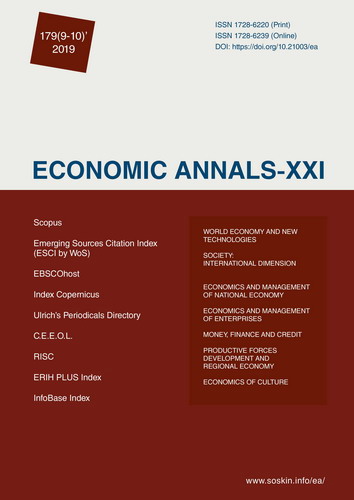Disruptive technologies for the transition of digital economies towards sustainability
Disruptive technologies for the transition of digital economies towards sustainability
Author(s): Leonid Melnyk, Iryna Dehtyarova, Oleksandr Kubatko, Oleksandra Karintseva, Anna DerykolenkoSubject(s): Socio-Economic Research
Published by: Institute of Society Transformation
Keywords: Disruptive Technology; Innovation; Industrial Revolution; Internet of Things; Economic System; Development; Cyber-physical System; Gross Domestic Product per capita;
Summary/Abstract: The paper reveals the concept of disruptive technologies as a phenomenon that opens a new cycle of productive forces development. The paper shows essential disruptive technologies which have determined the change of socio-economic formations of human development: from agrarian societies to industrial and post-industrial ones. The authors of the article have analyzed key disruptive technologies which form the basis for the Internet of Things. Thus, it is stated that the innovations created on the basis of personal computers, mobile phones, Internet, Wi-Fi, renewable energy, 3D printers, digital technology, artificial intelligence, RFID tags, GPS, robots, and «cloud» technologies are the original components of the Internet of Things. A prognosis is that 37 billion devices will have been connected to the Internet of Things in the world by 2024. The paper demonstrates the economic view on disruptive technologies as a phenomenon that changes the benefit-cost ratio. The article reveals possible positive and negative effects of the implementation of disruptive technologies. The concept of the so called «the innovator’s dilemma» is discussed, and two principles of disruptive technologies are shown (creative, since it opens a new technological cycle, and destructive, since it undermines the production bases). The authors have empirically estimated the effects of key drivers that impact the average global GDP per capita. Thus, energy use, fixed telephone subscriptions (per 100 people), gross capital formation, improvements in life expectancy, and an increase in mobile cellular subscriptions are among the factors that increase the economic performance.
Journal: Економічний часопис - ХХІ
- Issue Year: 179/2019
- Issue No: 09+10
- Page Range: 22-30
- Page Count: 9
- Language: English

